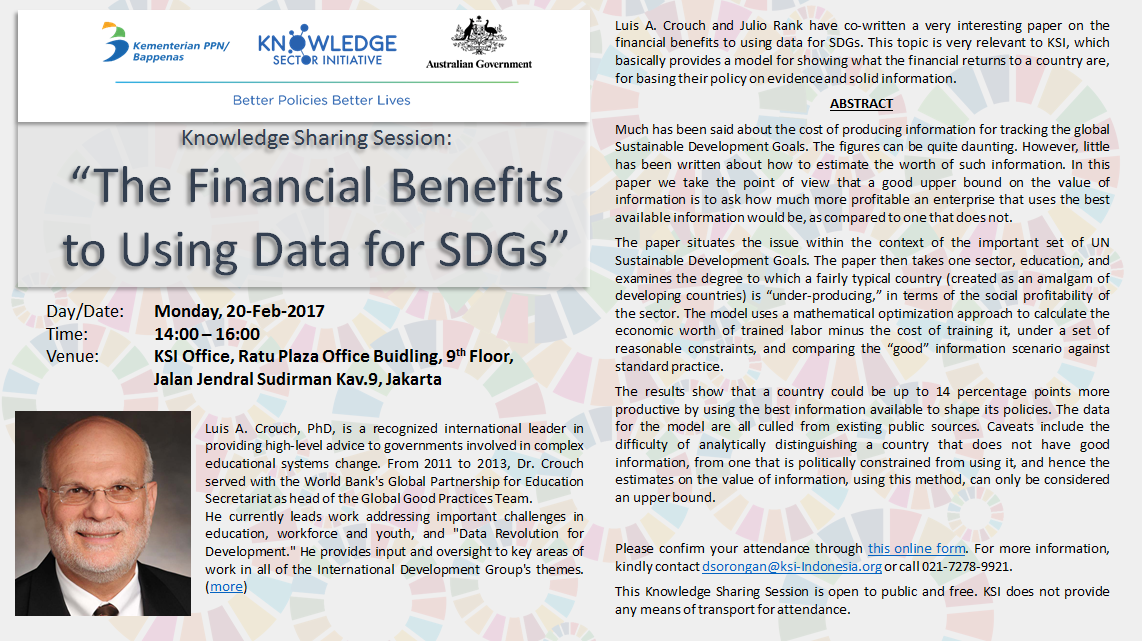Severity: 8192
Message: Methods with the same name as their class will not be constructors in a future version of PHP; MY_Lang has a deprecated constructor
Filename: core/MY_Lang.php
Line Number: 16

Luis A. Crouch and Julio Rank have co-written a very interesting paper on the financial benefits to using data for SDGs. This topic is very relevant to KSI, which basically provides a model for showing what the financial returns to a country are, for basing their policy on evidence and solid information.
ABSTRACT
Much has been said about the cost of producing information for tracking the global Sustainable Development Goals. The figures can be quite daunting. However, little has been written about how to estimate the worth of such information. In this paper we take the point of view that a good upper bound on the value of information is to ask how much more profitable an enterprise that uses the best available information would be, as compared to one that does not.
The paper situates the issue within the context of the important set of UN Sustainable Development Goals. The paper then takes one sector, education, and examines the degree to which a fairly typical country (created as an amalgam of developing countries) is “under-producing,” in terms of the social profitability of the sector. The model uses a mathematical optimization approach to calculate the economic worth of trained labor minus the cost of training it, under a set of reasonable constraints, and comparing the “good” information scenario against standard practice.
The results show that a country could be up to 14 percentage points more productive by using the best information available to shape its policies. The data for the model are all culled from existing public sources. Caveats include the difficulty of analytically distinguishing a country that does not have good information, from one that is politically constrained from using it, and hence the estimates on the value of information, using this method, can only be considered an upper bound.

Luis A. Crouch, PhD, is a recognized international leader in providing high-level advice to governments involved in complex educational systems change. From 2011 to 2013, Dr. Crouch served with the World Bank's Global Partnership for Education Secretariat as head of the Global Good Practices Team.
He currently leads work addressing important challenges in education, workforce and youth, and "Data Revolution for Development." He provides input and oversight to key areas of work in all of the International Development Group's themes. (more)
Please confirm your attendance through this online form. For more information, kindly contact dsorongan@ksi-Indonesia.org or call 021-7278-9921.
This Knowledge Sharing Session is open to public and free. KSI does not provide any means of transport for attendance.
 We know the Cost: Do we Know the Value? Measuring the Education SDGs
We know the Cost: Do we Know the Value? Measuring the Education SDGs